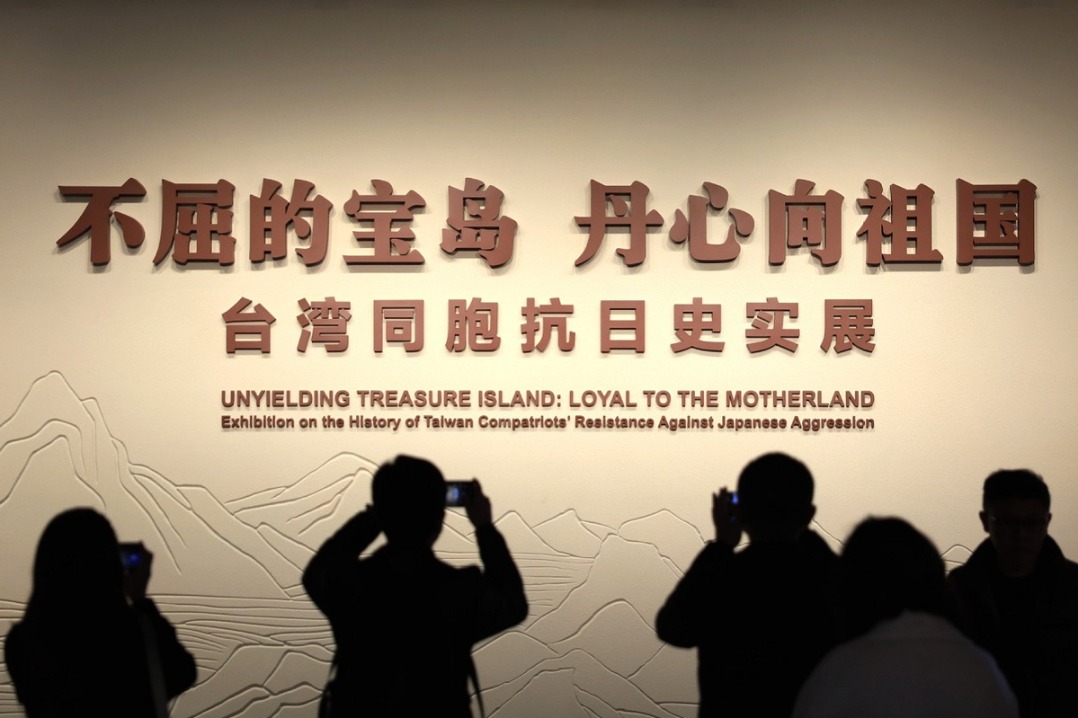Conference exhibits Shanghai's smart city models

The 2025 SDG Cities Global Conference kicked off in Shanghai on Sunday, showcasing how the city's innovative approaches are empowering sustainable development in urban areas worldwide.
This year's edition of the Shanghai Manual was unveiled at the event. The document includes 21 case studies from 11 countries, covering various aspects such as urban planning, economic revitalization, community governance, transportation, cultural tourism, climate and energy, ecological protection and digital governance. It aims to provide replicable experiences and policy references for building people-centered smart cities globally.
Among the selected cases, eight are from China, with two notable examples from Shanghai — the Pudong New Area's Dongming Road community, which enhances youth participation through modern technologies; and the Shanghai metro's smart maintenance project, which marks the first complete digital transformation in the nation's rail transit industry.
The Dongming Road community faces a live-work separation issue among younger residents, as many work outside the neighborhood during the day and return only at night to rest.
To boost youth involvement, the community developed a mobile app that offers a 3D replica of the area, displaying government notices, news and activity schedules in a virtual exhibition space. The app also features an augmented reality oral history system, allowing residents to scan physical spaces to access historical images and audio. The initiative transforms stories from the past into communal knowledge and encourages young people to rediscover their neighborhood through gamification.
The Shanghai metro system, with an operational length of nearly 900 kilometers and a daily ridership exceeding 10 million, has implemented a smart maintenance model. This approach integrates industrial internet, artificial intelligence, big data and cloud computing to shift from reactive maintenance to proactive real-time monitoring, intelligent alerts and precise interventions.
Xi Xiaodong, chief engineer at Shanghai Metro Maintenance and Support Co, said the new system has significantly improved inspections, conducting more frequent checks of the electric wires above the trains, and responding to and resolving incidents more quickly.
"In the past, the entire inspection cycle took 15 to 30 days and relied completely on manual work," he said.
Xi added that the system has also reduced the response time to equipment failure from 60 minutes to 20 minutes.
Beyond the Shanghai Manual, a range of Shanghai-branded public products is set to go global, including the Shanghai Award, or the Global Award for Sustainable Development in Cities. The accolade, the first international award jointly presented by the United Nations Human Settlements Programme and the Shanghai government, recognizes cities excelling in sustainable development.
On Friday, the global World Cities Day event in Bogota, Colombia, will announce the five cities receiving the Shanghai Award for 2025, marking its third presentation and second overseas ceremony.
"We aim to help global cities share experiences on the UN platform, turning governance insights into globally shared resources. For developing and least developed countries, this is a rare opportunity to enhance their voices and influence in global governance," said Cheng Jian, director of the affairs coordination center at the Shanghai World Cities Day event.
Ten cities received the Shanghai Award over the past two years, including Melbourne in Australia, George Town in Malaysia, Kampala in Uganda, Fuzhou in China and Thiruvananthapuram in India, covering cities from developed, developing and least developed countries.
Shanghai's experiences are increasingly gaining international traction. In a residential compound in the city's Yangpu district, a spontaneously formed youth-led advocacy group has hosted 28 international delegations from countries such as the United States, France, Italy and Spain. The community exemplifies Shanghai's "15-minute community life circles" — in which all services are accessible within 15-minute walks from people's homes — a concept first proposed at the inaugural World Cities Day Forum in 2014 and now being promoted nationwide.
Experts said Paris adopted a similar plan in 2020, and Milan is considered one of the closest cities to achieving the "15-minute city" goal, highlighting Shanghai's influence in global urban planning.
The Shanghai conference also saw the release of a set of international standards for green block design, developed over three years by the World Green Design Organization with experts from multiple countries. The organization has established its standards secretariat at the East China University of Science and Technology in Shanghai.
"The standards have already been applied in some blocks in Shanghai's Huangpu and Jiading districts and will soon be promoted to 14 WGDO network countries, including Belgium, Germany and the United Kingdom, with plans for global expansion," said Wang Jun, dean of the School of Design at the East China University of Science and Technology.
zhouwenting@chinadaily.com.cn
- Conference exhibits Shanghai's smart city models
- Demand rises for strategic minerals
- China fortifies public interest mechanism
- Nation marks 80th anniversary of Taiwan's restoration
- Xinjiang's Tacheng secures 10bn yuan boost for modern industrial projects
- Tianjin leads nation in geothermal energy use




































